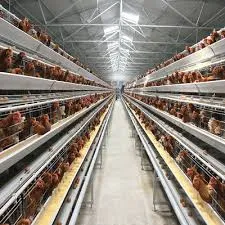vacuum meat packaging machine
Dec . 06, 2024 19:20 Back to list
vacuum meat packaging machine
Vacuum Meat Packaging Machines Ensuring Freshness and Quality
Vacuum meat packaging machines have become an essential tool in the food industry, revolutionizing the way meat products are preserved and marketed. As consumers become increasingly concerned about food safety and quality, the demand for efficient packaging solutions has grown significantly. These machines play a critical role in extending the shelf life of meat products, enhancing their freshness, and maintaining their flavor while providing convenience for consumers and suppliers alike.
One of the primary functions of vacuum packaging machines is to remove air from the packaging. By eliminating oxygen, these machines inhibit the growth of bacteria and mold, which are responsible for spoilage. This is particularly crucial for meat products, as they are highly perishable. Vacuum-sealed packaging creates a barrier against external elements, ensuring that meat remains fresh for an extended period. This technology is not only beneficial for maintaining freshness but also helps in reducing food waste, a significant issue faced by the meat industry today.
The process of vacuum packaging begins by placing the meat inside a plastic film bag. The vacuum machine then removes air from the bag before sealing it tightly. This process ensures that the meat is securely sealed, preventing any exposure to air. Many modern machines also offer options for different levels of vacuum pressure, catering to various types of meat and their specific packaging requirements. For instance, delicate cuts may require a gentler vacuum setting to avoid crushing the meat while still ensuring effective air removal.
In addition to enhancing longevity, vacuum packaging also preserves the quality and flavor of meat products. When meat is vacuum sealed, the natural juices are retained, preventing the product from drying out. This results in a more flavorful experience for consumers, as the meat retains its moisture and tenderness. Furthermore, the vacuum packaging process discourages oxidative reactions that can lead to rancidity, ensuring that the nutritional value of the meat stays intact.
vacuum meat packaging machine

From a commercial perspective, vacuum meat packaging machines streamline operations and reduce labor costs. Manual packing can be labor-intensive and prone to errors, but automated vacuum packaging machines significantly speed up the process, allowing businesses to package meat efficiently. Many models are equipped with advanced features such as user-friendly interfaces and automatic sealing, making it easier for operators to achieve consistent results. Furthermore, these machines can accommodate high volumes of product, which is vital for meeting the demands of retailers and consumers.
Sustainability is another important aspect of vacuum packaging. By increasing shelf life and reducing spoilage, these machines contribute to more sustainable practices in the meat industry. The reduction of food waste through effective packaging aligns with the global movement towards more responsible food production. Many manufacturers are also focusing on eco-friendly materials for their packaging solutions, enabling businesses to adopt environmentally friendly practices without compromising on product quality.
The versatility of vacuum packaging machines extends beyond meat. They can be used for various food products, including cheeses, vegetables, and even dry goods, making them a worthwhile investment for food processors and manufacturers. This adaptability positions vacuum packaging as a critical component in the broader context of the food supply chain.
In conclusion, vacuum meat packaging machines are an indispensable innovation in the food industry. With their ability to preserve freshness, enhance flavor, and reduce waste, they offer numerous benefits to both suppliers and consumers. As technology continues to advance, the efficiency and sustainability of these machines will likely improve, paving the way for better practices in food preservation and distribution. Investing in state-of-the-art vacuum packaging technology will not only help businesses meet consumer demands but will also contribute positively to the environment and food security in an ever-evolving market.
-
Hot Sale 24 & 18 Door Rabbit Cages - Premium Breeding Solutions
NewsJul.25,2025
-
Automatic Feeding Line System Pan Feeder Nipple Drinker - Anping County Yize Metal Products Co., Ltd.
NewsJul.21,2025
-
Automatic Feeding Line System Pan Feeder Nipple Drinker - Anping County Yize Metal Products Co., Ltd.
NewsJul.21,2025
-
Automatic Feeding Line System - Anping Yize | Precision & Nipple
NewsJul.21,2025
-
Automatic Feeding Line System - Anping Yize | Precision & Nipple
NewsJul.21,2025
-
Automatic Feeding Line System-Anping County Yize Metal Products Co., Ltd.|Efficient Feed Distribution&Customized Animal Farming Solutions
NewsJul.21,2025






